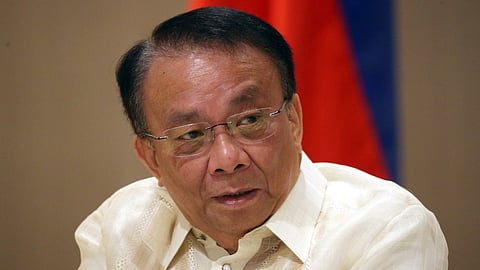
- NEWS
- the EDIT
- COMMENTARY
- BUSINESS
- LIFE
- SHOW
- ACTION
- GLOBAL GOALS
- SNAPS
- DYARYO TIRADA
- MORE

After four years, the Financial Action Task Force (FATF) has removed the Philippines from its “greylist,” citing significant progress in combating money laundering and terrorist financing.
In a statement, the Anti-Money Laundering Council (AMLC) welcomed the development, highlighting the collective efforts of government agencies in achieving this "expected" outcome.
“The Philippines’ exit from the FATF greylist is expected to facilitate faster and lower-cost cross-border transactions, reduce compliance barriers, and enhance financial transparency,” the AMLC stated.
“These improvements will support businesses, strengthen the country's position as an attractive destination for foreign direct investment (FDI), and benefit Filipinos, particularly overseas Filipino workers (OFWs),” it added.
The AMLC also credited President Ferdinand Marcos Jr. for his role in the process, particularly through the issuance of Executive Order No. 33 in July 2023, which served as a roadmap for addressing the FATF action plan.
The Philippines was placed on the greylist in 2021 due to risks related to financial crimes such as money laundering and terrorism financing. During this period, the country had to meet several requirements to secure its removal and avoid the more severe blacklist designation, which could have led to serious economic repercussions.
Key measures implemented included cracking down on illegal activities like unregistered money transfer operations, mitigating risks associated with casino junkets, improving access to accurate beneficial ownership information for law enforcement, increasing investigations and prosecutions related to financial crimes, and implementing safeguards to prevent the misuse of non-profit organizations while preserving legitimate operations. Additionally, the country strengthened cross-border monitoring at major sea and airports.
Executive Secretary Lucas Bersamin, chairman of the National Anti-Money Laundering/ Counter-Terrorism Financing/ Counter-Proliferation Financing (AML/CTF/CPF) Coordinating Committee (NACC), emphasized the benefits of the Philippines’ removal from the greylist, particularly in attracting foreign investment and job creation.
“For so long, our investment attractiveness has been dragged down by this ‘dirty money haven’ label,” he said.
“This seal of good financial housekeeping benefits overseas Filipinos as it will make cross-border transactions faster and cheaper by eliminating layers of compliance barriers,” he added.
Bersamin affirmed that the government’s “hard-fought” victory against money laundering would be “preserved and protected through consistent compliance with global standards.”
